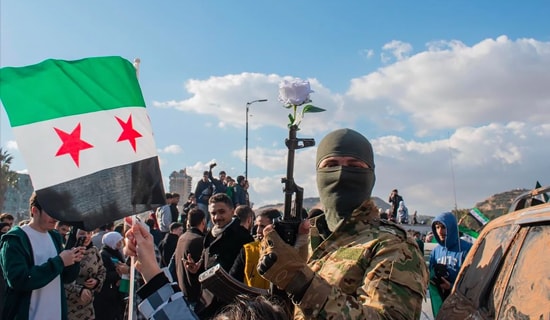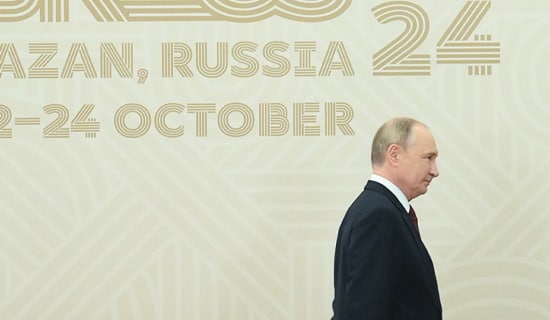On May 22, 2008, the reformist Arab website www.elaph.com posted a comprehensive interview with Muslim Brotherhood Supreme Guide Muhammad Mahdi 'Akef.[1] In the interview, 'Akef discussed the Egyptian domestic scene, and presented the Brotherhood's position on democracy and on the status of the Copts and women in Egypt. He expressed support for the resistance in Iraq and Palestine, and for the activities of Al-Qaeda.[2]
'Akef's statements evoked harsh criticism among clerics and politicians both inside and outside Egypt, who perceived them as praise for bin Laden and his terrorist activities.[3] Faced with such critical reactions, 'Akef attempted to qualify his position with respect to bin Laden, explaining that bin Laden's ideology was based on violence and that the Muslim Brotherhood movement opposed all violence, except when directed against occupation. He also denied any connection between his movement and Al-Qaeda, which he called "a figment of Americans' imagination."[4]
The following are excerpts from the interview:
"No Dialogue with Foreign Governments Will Take Place in the Absence of an Egyptian Government Representative"
Interviewer: "...What about your contacts with the Americans since their invasion of Iraq and your suggested Greater Middle East Project?"
'Akef: "Our position on contacts with the Americans is totally clear. We hold dialogue with all American civil organizations, universities, media outlets and research institutes, as we see fit, whether [they are] here [in Egypt] or over there [in the U.S.] But when it comes to the American government, our position is different. Since my appointment as Supreme Guide of the Muslim Brotherhood, I have insisted that no dialogue with foreign governments take place in the absence of an Egyptian government representative. This is out of respect for the laws and institutions of the state in which I live."
"A Copt Cannot Rise to a Position of Leadership"
Interviewer: "Let's discuss the problems that were pointed out by Western research institutes regarding your movement... These are issues that lead to controversy over [the advisability of] contacts with [your movement], both on the local level [i.e., inside Egypt] and abroad. Let us start with your position regarding the Copts, or Egyptian Christians."
'Akef: "We regard them as Egyptians. They have the same rights and duties as us. They are entitled by birth to full citizenship. This position is not my invention, it is [based on] Allah's law, which respects [all] human beings."
Interviewer: "You say that a Copt has full citizenship. So how do you explain your [position] that a Copt cannot be president, and the way you use the slogan, 'A Copt cannot be Supreme Leader [of Egypt]'?"
'Akef: "The question of a Copt becoming leader is a point of contention among the Muslim ulema. Some say that it is possible, and some say not. We tend towards the negative [view]... but the final decision is up to the people."
Interviewer: "Is this not a flagrant violation of [the Copts'] civil rights?"
'Akef: "Not at all. It is [an inherent part of] the culture of a Muslim country, which has Islamic values and principles that must be respected."
"The Christians Understand that Egypt is an Islamic Country"
Interviewer: "In your opinion, is Egypt a Muslim country or a pluralistic civil society?"
'Akef: "It is a Muslim country, because the great majority of the people are Muslim, and because the culture, customs, and tradition are Muslim. The Christians understand this."
Interviewer: "Your statements which discriminate among [different sectors] in Egyptian society, and your characterization [of Egypt] as 'Muslim' – don't [you think that] they cause Christians in Egypt, and even in the West, to feel alarm regarding your movement?"
'Akef: "These words cannot possibly cause a reasonable person to feel alarm, since we are not impinging on anyone's freedoms or property. [It is the Egyptian] state that has allowed every [violation], including [violations against] property."
"When We Come to Power, We Will Implement Shari'a"
Interviewer: "Do you still intend to implement Islamic shari'a if you come to power?"
'Akef: "If we come to power, this will mean that the people share our vision. Moreover, don't we live for the sake of shari'a? Doesn't the Egyptian constitution say so?"
Interviewer: "Why won't you learn from the Turkish experience, i.e. to act upon your ideas in the framework of a secular, rather than religious, society?"
'Akef: "When the Justice and Development Party in Turkey won [the elections], a journalist approached me straight away with a question: 'Will the Islamic nation benefit from the Turkish experience?' I replied that this was out of the question, for the Justice party had come to power through the democratic process, while in our country there is neither freedom nor democracy."
"A Woman Cannot Be President"
Interviewer: "What about women's rights, in particular, a woman's right [to occupy] a senior position? Has your position on women's rights – e.g. the right to become president of the republic – become more positive?"
'Akef: "Even the ulema differ with regard to the issue whether a woman can be supreme leader. We have the right to choose between the two positions, and we have chosen the view that this is impossible."
Interviewer: "So how do you honor the woman if you deny her the right to rise to senior positions, even to a leadership position in your movement?"
'Akef: "Would it be right for us to put her in a position where she would run the risk of imprisonment?! The most difficult task, one that brings the women of the Muslim Brotherhood close to Allah, is the education of their sons. I'll give you an example from real life: When several female members of the movement offered to run in parliamentary elections, what happened to them? Don't you know that a woman is under the man's guardianship, and he does not want her to degrade herself?"
"The Shura Council is the Paragon of Democracy"
Interviewer: "What is your position on democracy? Have you adopted a clear stand [on this issue] or are you still deliberating on the Shura Council?"
'Akef: "The Shura Council is a manifestation of democracy at the highest level in terms of respect it gives a person. This, [however], requires qualification. The Shura Council [i.e., the Egyptian Shura Council, which is one of the parliament houses] has no connection to democracy, since it does not have real [authority]: decisions are made exclusively by the ruler. So how can it be a manifestation of democracy at the highest level?
"The Shura Council can be the paragon of democracy, but [only] democracy of a right kind, [i.e.,] one that honors shari'a. I distinguish between this kind of democracy and the Western democracy, which allows [a man] to act as he pleases, [even] in contradiction to Allah's commandments. Our movement leader [i.e., head of the Muslim Brotherhood] does nothing [without consulting] the shura council [of the movement]. The decision is made by the Supreme Guide's office and not by me."
Interviewer: "If this is the case, is it true that you ride the wave of democracy, as the saying goes, even though you do not believe in it, in order to realize your goals? And in the end, your true authoritarian face will be revealed, along with your 'closed doors policy'?"
'Akef: "Now we are back to secular talk! I object to this [approach], since it relies on judgment based on intentions [rather than actions], and since its only purpose is to slander."
Interviewer: "When I asked you about democracy, your answer was about democracy within your movement. In this connection, what can you say about [your] ostracism of the oppositionists [within the movement] and about the occasional factionalism in your ranks?"
'Akef: "We are not expelling anyone [from the movement]. Could the withdrawal of 10 or [even] 100 movement members out of a million be regarded as a mass exodus or as factionalism? My movement is open – whoever wants to stay can stay, and whoever wants to leave can leave. This doesn't bother us."
Interviewer: "But one of the [members] who has seceded, specifically 'Imad Taha, spoke not only about the dictatorship that reigned in the movement, but also about the movement's militias receiving semi-military training in Egypt, and military training in Iraq and Palestine."
'Akef: "This is a lie – totally unfounded."
Interviewer: "What about the military parade organized recently at the Al-Azhar University – whose participants were put on trial?"
'Akef: "This alleged military parade was in fact a sporting event. Such events had been staged [before] dozens of times. Hence, putting the participants on trial was nothing but an attempt by secular and security elements to obfuscate [the truth]. Proof to this is that the court cleared them of all charges…"
"If We Are Allowed, We Will Send Fighters to Join the Resistance in Iraq and Palestine "
Interviewer: "Let us put internal issues aside for a moment. I would like to ask you about your position regarding the statements of Al-Qaeda's second in command, Ayman Al-Zawahiri, who is calling to [armed] attacks inside the Zionist entity to mark the 60th anniversary of the Nakba."
'Akef: "Al-Zawahiri can do as he pleases."
Interviewer: "But in the past, you have dispatched fighters to the occupied country [i.e. Palestine]. Can this happen again today?"
'Akef: "True, we have dispatched fighters in the past, but the army and the government fought on our side. Now, if we are permitted, we will send fighters to oppose occupation – whether of Iraq or Palestine."
Interviewer: "Must resistance be authorized by the government?"
'Akef: "Do you want us to clash with the government?"
Bin Laden is "Without a Shadow of a Doubt – a Jihad Fighter"
Interviewer: "On the subject of resistance and jihad – do you consider Bin Laden to be a terrorist or a jihad fighter?"
'Akef: "Without a shadow of a doubt – a jihad fighter. I do not doubt the fact that he opposes occupation, nor that he does this in order to get closer to Allah, may He be praised and extolled."
Interviewer: "Doesn't what you have just said contradict your portrayal of Al-Qaeda as a product of the U.S.?"
'Akef: "The [organization's] name is indeed a product of the U.S., but Al-Qaeda as a concept and as an organization has emerged out of [the need to find a way out of] oppression and corruption."
Interviewer: "Does this mean that you support Al-Qaeda's activities, and if so, to what extent?"
'Akef: "Yes, I support its activities against occupation, but not against civilians."
"When We Come to Represent the Entire People, We Will Call for Civil Revolt"
Interviewer: "[What about] the most recent incident in Egypt, as a result of which your position incurred criticism? I am speaking about [the movement's] refusal to take part in the first general strike [April 6, 2008], since at the time you were hoping that the Egyptian military court would accept a plea bargain [by the movement's senior officials]. After the verdicts had been published, [however,] the movement decided to take part in the second strike [May 4, 2008], which failed."[5]
'Akef: "[The way you put it] is wrong, since we took part in all protests, and the statement we published April 6, 2008, was forceful and clear. [In it,] we stressed that we would take part in any strike that served the interests of any group within the nation, or for that matter, the interests of Egypt as a whole. As for the criticism leveled at us [for not participating in] the April 6 strike – we did participate, albeit in a way that did not contribute to anarchy or a rift in society.
"The reason that we did not come out with a clear statement whether we would or would not take part [in the April 6 strike] is that we did not know who was behind it, since the call for this strike had been made via the Internet, or rather, by Facebook members. As for the May 4, 2008 strike, we definitely did take part in it – since participation could be achieved indirectly, e.g. by staying home and refraining from buying government newspapers. This gave the strike its momentum…"
Interviewer: "But in light of the current economic and political situation, all the people expected you to adopt a more decisive stance, since the people regard you as the strongest [opposition] group. The people expected you to call for civil revolt – and you did not have the guts do so."
'Akef: "Civil revolt is very different from a strike. Civil revolt is useless unless it rests on a consensus of all political forces [within the opposition]. We agreed to the strike in order to achieve a specific objective. Moreover, we do not represent the entire people. When we gain the legitimacy to represent the people [as a whole], we will call for civil revolt…"
"We Do Not Accept Gamal Mubarak [as President]"
Interviewer: "If, as you claim, the Muslim brotherhood is not competing with the NDP for leadership, why the recent attacks on your movement [on the part of the Egyptian security forces]?"
'Akef: "The attacks are not only on the Muslim Brotherhood, but on anyone who opposes the American-Zionist project."
Interviewer: "What is your position regarding [Mubarak's] successor and [how do you account for] your decision to withdraw support from the president's son and to act in opposition to him?"
'Akef: "We have changed our position not twice but three times. At first, we supported Gamal as candidate [for presidency] – on par with any ordinary citizen; however, when the 76th clause of the constitution, which stipulated that president must be chosen from among several candidates, was amended and adapted [to serve the needs of] President [Mubarak's] son, I said that if he wanted to submit his candidacy, he must leave his father's palace and join the [common] people.
"Then changes were made in other clauses of the constitution, which legalized tyranny. There was also the policy of the political committee [of the NDP], headed by Gamal Mubarak, which obviously supported tyranny, courts martial and the insupportable security situation, under whose burden Egypt had been laboring. At that point I said that we would not accept Gamal and that we were categorically against him…"
Interviewer: "…What about the future? Will you use force to end your conflict with the Egyptian regime if the doors remain closed before you?"
'Akef: "I don't believe we are fighting the government; we are [merely] in conflict with it. We have no choice but to help and respect the regime, since the regime, the resources, and security are in the hands of one small group. We are dealing with this situation with great patience and wisdom, in order to put an end to corruption without destroying institutions and creating anarchy. We have hopes for [a better] future and faith in the great Egypt."
[1] www.elaph.com, May 22, 2008.
[2] www.elaph.com, May 22, 2008.
[3] Al-Sharq Al-Awsat (London), May 24, 2008.
[4] Al-Sharq Al-Awsat (London), May 25, 2008.
[5] During the past several months, in Egypt there have been calls for general strikes and civil revolt in protest against the economic situation. The first strike, on April 6, 2008, was accompanied by rioting in the city of Al-Mahallah Al-Kubra. Another strike, on May 4, 2008, achieved limited success, and according to some failed altogether. The Muslim Brotherhood movement refused to participate in the first strike but took part in the second. It is noteworthy that on April 15, 2008, the Egyptian military court sentenced 25 senior officials of the Muslim Brotherhood movement to prison terms ranging between three and 10 years for laundering money and for funding banned groups, and acquitted 15 others. The movement's members, who doubted the integrity of the military court, severely criticized the verdicts, describing them as "purely political." The change of heart on the part of the movement with regard to participation in the strikes seems to have been closely related to this issue. For a detailed report on the strikes, see MEMRI, Inquiry and Analysis No. 434, "Egyptian Opposition Call Again for General Strike, Civil Revolt," May 2, 2008, http://www.memri.org./bin/articles.cgi?Page=countries&Area=egypt&ID=IA43408.





